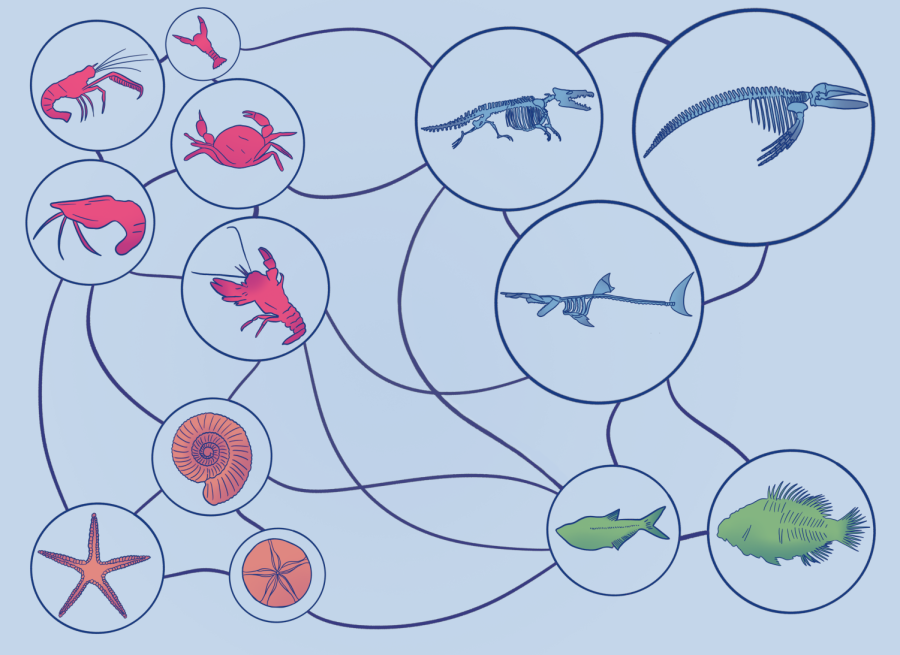UT researchers use social network algorithms to identify extinction patterns
March 21, 2022
UT researchers created an algorithm similar to a friend suggestion system from a social media app to help identify communities within marine fossil records and study various fossil groups together.
The goal of the study was to potentially identify future periods of extinction by studying the past. With the new algorithm, the researchers were able to make conclusions based on data that is already available but was difficult to analyze in the past due to various gaps in time. By linking communities through the network analysis algorithm, the researchers were better able to draw general conclusions from the fossils.
“I wanted to analyze the fossil record of communities using mathematics and statistics and data science in a way that we haven’t been able to do in the past because we didn’t have the computing power,” said Drew Muscente, lead researcher and author of the study.
The study, which was published Dec. 1, attempts to prove the punctuated equilibrium theory that life on earth consists of long periods of stability followed by short mass extinctions.
This is the first time that researchers used a network analysis algorithm on marine fossil records to relate data on a large scale, according to a press release from the Jackson School of Geosciences.
“The way Facebook or Twitter suggests people to follow or to friend, it’s because … you’re often found within the same group of people … or associated with the same place at the same time,” co-author and researcher Rowan Martindale said. “In the same way that those algorithms can look at networking amongst people, we can use that in fossil records.”
Martindale, associate professor of geological sciences, said they used marine fossils in their study because they are more readily available for researchers. Marine organisms are more likely to turn into fossils because they sit in the water undisturbed, Martindale said.
The use of network analysis algorithms on marine fossils can help researchers identify when the next period of extinction will occur.
“Earth is on the cusp of a great change. … This causes a great deal of concern for us,” Muscente said. “It’s my hope that my research can help us to contextualize this change. If we understand the past, it is my hope that we can predict the future to a degree.”












